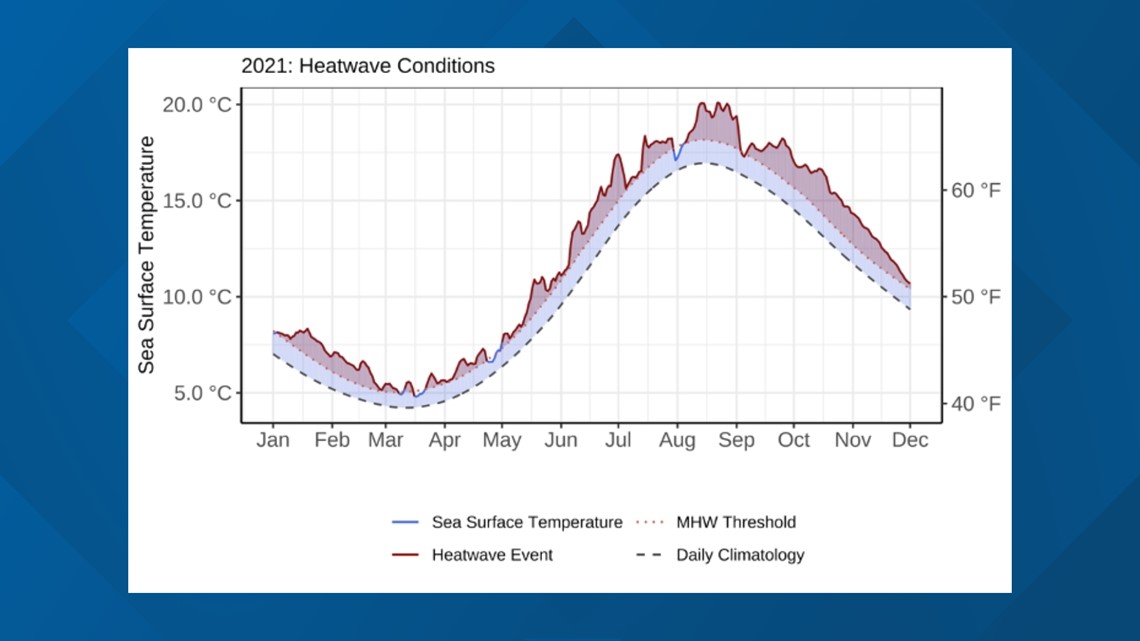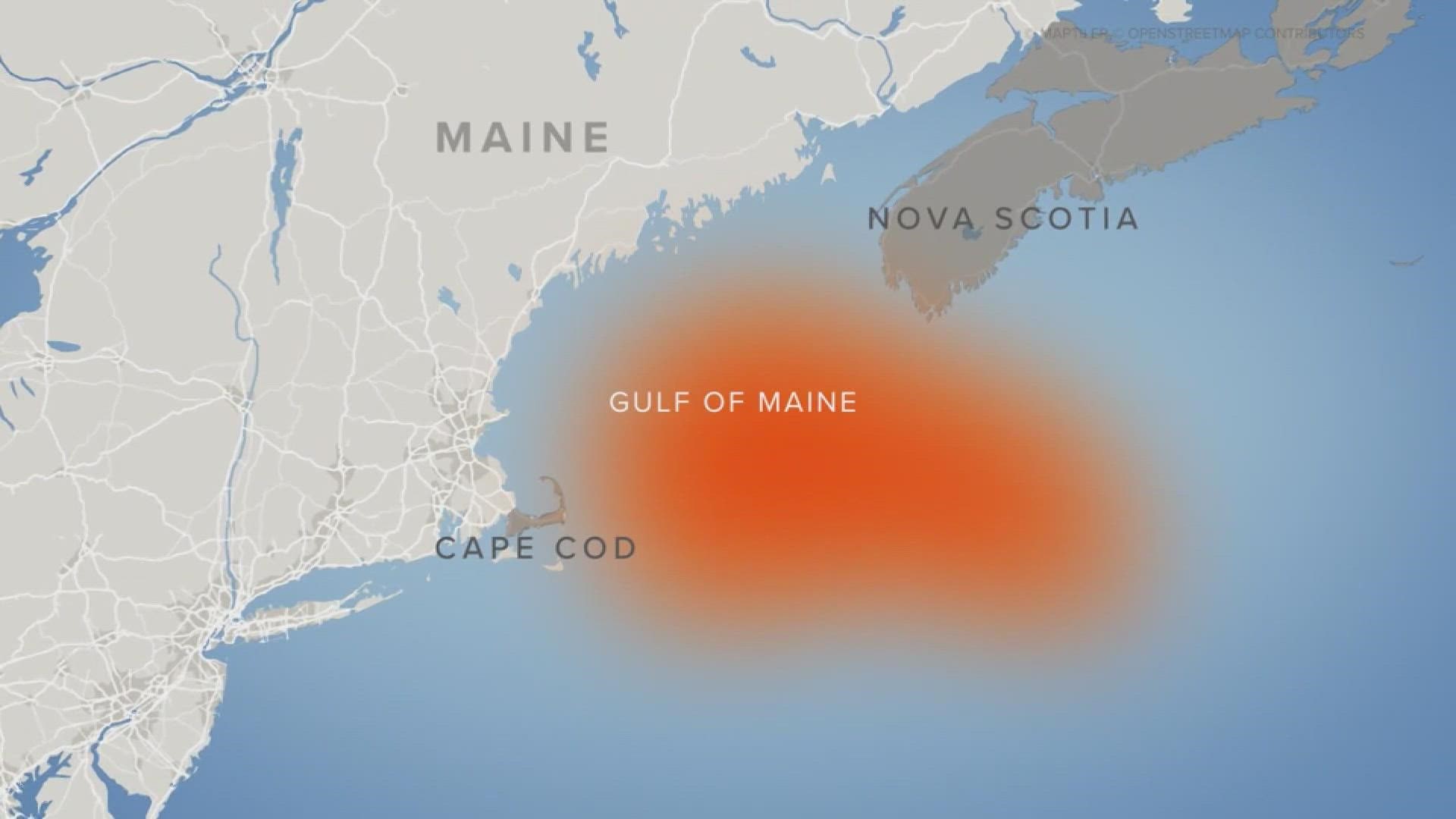PORTLAND, Maine — Anyone who enjoyed the ocean last fall may have noticed the water felt unseasonably warm. That's because it was.
The Gulf of Maine Research Institute reported last month that between September and November 2021, the sea surface temperatures of water off the coast of Maine were the warmest ever recorded.
How much warmer are we talking about? Close to six degrees Fahrenheit warmer on any given day than the average, according to David Reidmiller, Climate Change Director at GMRI. The sea surface temperatures hovered around 60 degrees almost through the month of October.


Warming ocean waters are a global trend, but in 2010 scientists really started to notice an increase in the warming trend in the Gulf of Maine, which lies from Cape Cod to Nova Scotia and extends several miles into the open ocean.
"While it may be the warmest [fall] we’ve experienced to date, it may be one of the coolest we will experience for years to come," Reidmiller said.
The Gulf of Maine is warming faster than 96% of the world's oceans. Reidmiller said the shallow geography of the gulf is a large factor along with competing hot and cold currents that run into the area. The Labrador Current from the Arctic spills cold water into the Gulf of Maine, while the Gulf Stream brings in hot water from the tropics. In the past decade, the water coming from the Gulf Stream has increased. What was once like a hose has now become a shower of tropical water spilling over Georges Bank and turning up the heat in the Gulf of Maine.
The expanding warmer water means sea levels rise and increases the frequency of coastal flooding. It also means significant changes to the ecosystems in the ocean and, in turn, to Maine fisheries.
In the past year, GMRI received sightings of animals — blue crabs, black sea bass, and a smooth hammerhead shark — usually only seen much farther south and in water much warmer than the Gulf of Maine.
Even though the numbers look bleak, Reidmiller says there are things that can be done to make a difference.
"We all have to recognize that this is the quintessential and defining collective action of our time," he said. "The good news is that the future is still in our hands."

